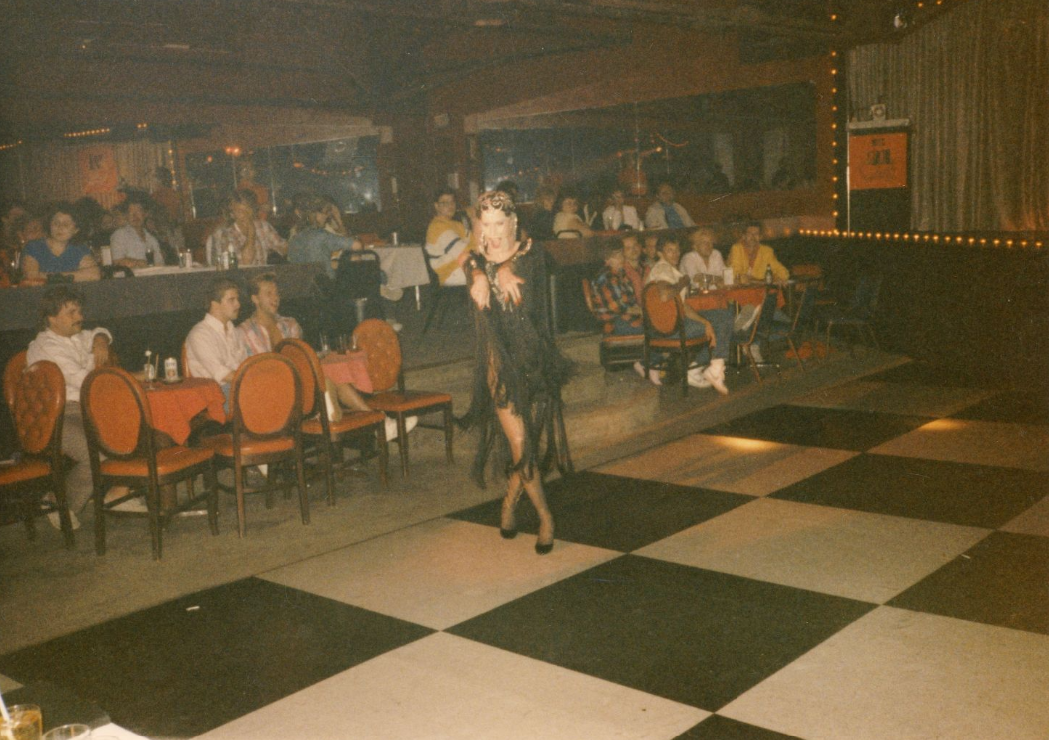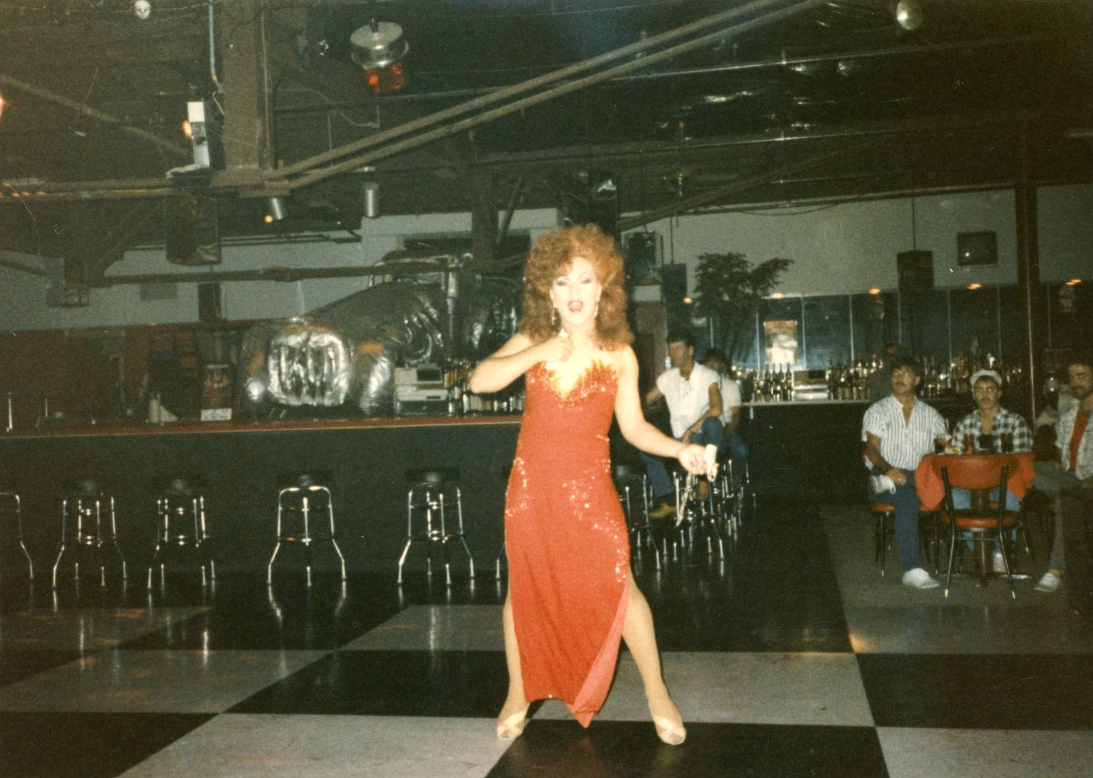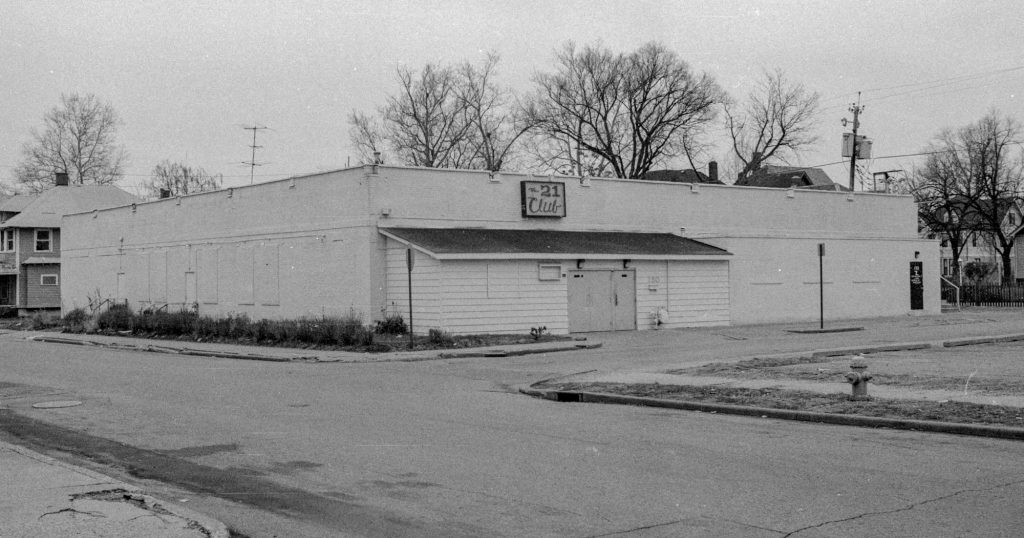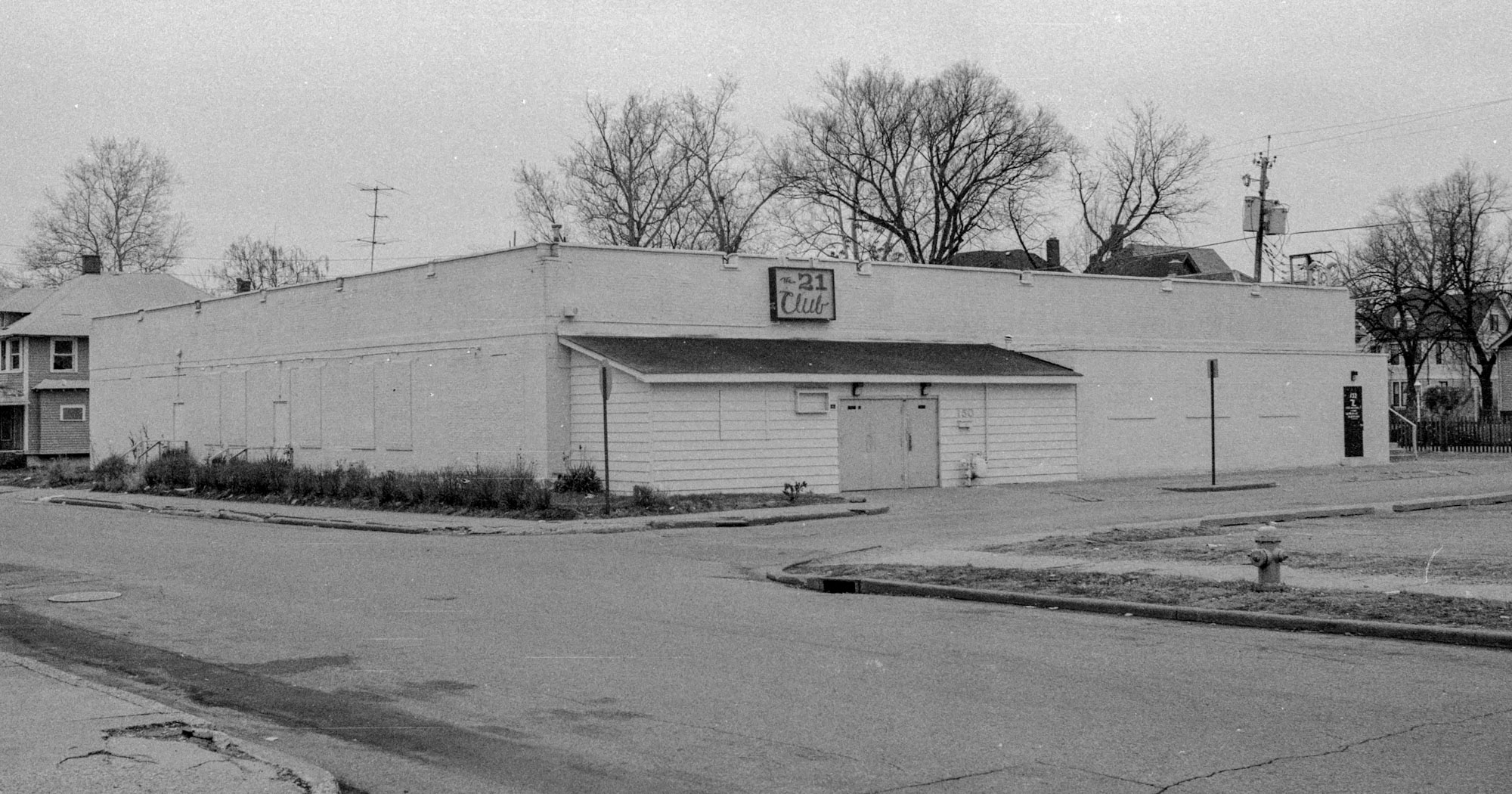The 21 Club, located on Indianapolis’s Talbott Street, was a 1980s gay bar and nightclub well-known for its oversized dance floor and welcoming ambience for gender non-conforming patrons. Longtime gay bar proprietor Paul Eckert operated The 21 Club from 1983 to 1989. Previously, Eckert and business partners John Martin and Donald Martinelli had operated another gay bar, Deja Vu, from 1973 to 1975. Eckert and Martin then went on to open a prominent LGBTQ+ nightclub called Johnny’s Place, located in a building they co-owned in the neighborhood, which lasted from 1982 to 1984. Eckert bought Martin’s share of the building and Johnny’s Place in 1984 and renamed the venue The 21 Club. With 13,5000 square feet of space, the venue, which welcomed male and female customers, became known as one of the largest nightclubs in the Midwest.


Credit: Bohr/Indy Pride/Gonzalez Collection, Indiana Historical Society (Left; Right)
With its varied entertainment and large dance floor, The 21 Club dominated the city’s LGBTQ+ bar scene in the 1980s. The club hosted talent shows, , concerts, Miss Gay Midwest USA pageants, and holiday “superparties.” Above all, the club became renowned for its disco dancing, fueled by the EuroDance music favored by club DJs.
In addition to providing popular entertainment options for LGBTQ+ customers, the venue hosted events linked to LGBTQ+ community building and activism. Fundraisers and benefit concerts for local causes such as Gay Pride Week, AIDS awareness groups, and the Greater Indianapolis Gay Business Association (GIGBA) were regularly held.

Despite the club’s success in cultivating a large LGBTQ+ clientele, the Herron-Morton Place Association, a neighborhood group in the area, showed little support for the presence of an LGBTQ+ nightclub in the vicinity. Before The 21 Club’s debut, Johnny’s Place had faced opposition from the neighborhood association, whose leaders feared the club’s presence would cause an increase in crime and decried the lack of security. The association raised concerns over the Marion County Liquor Board’s initial granting of the club’s liquor license and the granting of its Sunday liquor permit. To the neighborhood association’s displeasure, the Marion County Liquor Board renewed the license and permit when Johnny’s Club was renamed The 21 Club. Yet Talbott Street, another busy nightclub in the Herron-Morton Place neighborhood with a largely straight clientele, avoided neighborhood opposition. Many LGBTQ+ activists and The 21 Club patrons believed the neighborhood group’s disparate responses to the two venues revealed that opposition to The 21 Club was rooted in homophobia rather than fears over crime and inadequate security.
When the Herron-Morton Place Association’s efforts to close The 21 Club by blocking its liquor licensing failed, the association next attacked the club over zoning issues, arguing that the property’s current zoning did not allow for nightclubs. Years earlier, when a bowling alley had occupied the building, the applicable zoning regulation permitted an on-site cocktail lounge. After that business’s closure and the opening of The 21 Club five years later, Eckert incorrectly believed that the zoning rules that had permitted the cocktail lounge also accommodated the operation of his large nightclub. Seizing on Eckert’s oversight, the Herron-Morton Place Association and the Metropolitan Development Commission worked to shutter the bar.
After multiple hearings from 1985 to 1988, the Metropolitan Board of Zoning Appeals decided that The 21 Club’s operations violated applicable zoning regulations. Eckert’s appeal was unsuccessful, and the bar closed at the end of 1988.
Though The 21 Club’s Herron-Morton Place location did not survive, Eckert attempted to reopen the club in the neighborhood in early 1989. Eagledale residents and City-County Councilor Jeffrey L. Golc levied intense opposition to the nightclub, noting that the area already housed 16 liquor stores and bars, and alleging that the business’s presence would violate zoning regulations. Due partly to this local campaign, Eckert’s effort to reopen The 21 Club ultimately failed.
CITE THIS ENTRY
APA:
Schabel, G. (2025). The 21 Club. Encyclopedia of Indianapolis. Retrieved Feb 20, 2026, from https://indyencyclopedia.org/the-21-club/.
MLA:
Schabel, Gipson. “The 21 Club.” Encyclopedia of Indianapolis, 2025, https://indyencyclopedia.org/the-21-club/. Accessed 20 Feb 2026.
Chicago:
Schabel, Gipson. “The 21 Club.” Encyclopedia of Indianapolis, 2025. Accessed Feb 20, 2026. https://indyencyclopedia.org/the-21-club/.

Help improve this entry
Contribute information, offer corrections, suggest images.
You can also recommend new entries related to this topic.
